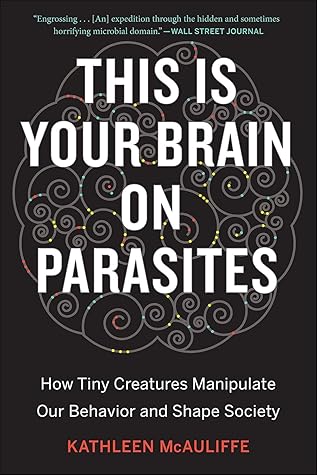More on this book
Community
Kindle Notes & Highlights
Compared to uninfected men, males who harbored the parasite were more inclined to break rules and were more reserved and suspicious. In contrast to uninfected females, infected women were more likely to abide by rules, and they also tended to have warmer, more outgoing personalities.
people with the parasite were 2.7 times more likely to be involved in traffic accidents than age-matched controls free of the infection.
In contrast to uninfected people, both men and women with the protozoan were much more likely to believe that they could be controlled through hypnosis. They also were far more inclined to report reacting slowly or passively to imminent threats and experiencing little or no fear in dangerous situations.
In the last trimester of pregnancy, we now know, babies sample their mothers’ diets by ingesting amniotic fluid. After birth, they show a preference for flavors that they encountered prenatally, biasing them toward eating foods and spices that are healthful in their communities.
pregnant women become more xenophobic in the first trimester, when their immune systems are suppressed to prevent rejection of the fetus, but not in later stages of gestation, when that danger has passed.


